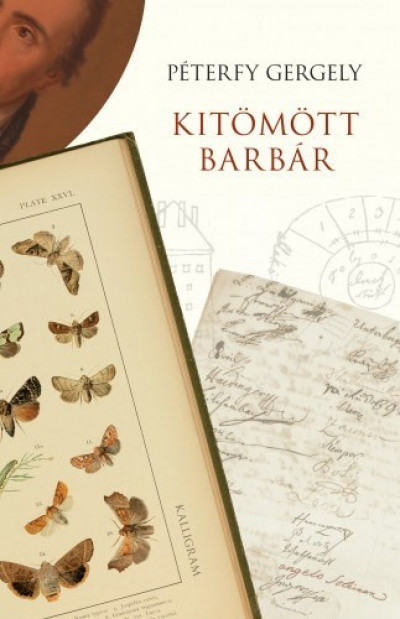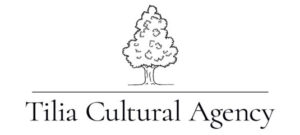
(excerpt)
I found it hard to restrain myself when Angelo told me these details. I couldn’t imagine that I could ever possibly stoop so low, and for a moment I felt that Angelo did, after all, live in a completely alien and distant world. He noticed that I’d grown sombre, but made no excuses, offered no explanations. In the end, he merely noted that sometimes people have to do quite extraordinary things in order to feel free.
We had a little glass of Tokaji from an old vintage of my mother’s. From then on, he spent a good deal of his free time in the Natural History Museum, which had just moved to new rooms next to the library and had therefore at last been able to exhibit the vast number of items collected from the leading families of the Empire decently.
Born’s condition grew palpably worse, especially after they banned the Illuminati and, because of the whirling pace of change and goals deemed impossible to fulfil, Joseph II promulgated his famous Patent against the Freemasons which, though allowing the lodges to continue functioning in theory, in effect banned all freedom of association. Since then, he had only a few decent hours each day, spending the rest of his time in a paralysing opium haze. Even his sarcastic bent was beginning to leave him, which Sonnenfeld said was the worst sign of all.
It was at that time, in my early twenties, that I first went as an initiate to Vienna and it was then that our friendship with Angelo began. Since we were both Freemasons, we knew from the first that we thought the same way about most things: but there was no way we could have predicted the curious way in which our destinies would become intertwined. The conversation in Freyung was followed by many subsequent meetings, though many fewer than we would have liked. The unusual attraction that we felt for each other from the very first moment only revealed its true nature to me slowly, and I only came to understand its greater meaning much later.
In 1791, we were walking together on the Graben. By then, the world had had the revolution in Paris that had suddenly rendered every careful and tentative attempt at improving things unnecessary and obsolete. On the one hand because every such attempt appeared to be laying the groundwork for mass murder as far as the outside world was concerned, and on the other because it turned out that you could do all this more quickly and more radically. In any case, we were more troubled than five years before, and it showed in our behaviour.
We’d arranged our walk for eleven o’clock with the intention of lunching together afterwards and then taking on the afternoon with a few bottles of good wine. I arrived first, enjoying the spectacle that my clothes made in the late morning crowd. I stopped in the same place, on the south side of the Plague Cross, where we had once been humiliated with my father. I had my father’s army cap on and my anti-Austrian Kuruc ancestors’ sword by my side, with which they had served Ferenc Rákóczi, and which – according to the notches scratched into it – had been watered by the blood of seven pro-Austrian Labances.
By that point, I had left off dressing to German fashions, and used to wear my ancestors’ clothes with the stubborn conviction that anyone who wanted to be appalled at the ‘Eastern savage’ was welcome. It amused me, and I hoped that it would amuse Angelo too. But when he turned up in the corner of the square with his familiar gait, I knew that we were in for more amusement than I had thought.
Angelo, whom up till then I had only seen in simple middle-class clothes, was now wearing a bright yellow kaftan and an emerald-green turban. In his hand, he held a walking stick with a lion’s-head handle, which he had had made after the painter had represented him with one in that famous engraving. In his other hand, he held an ostrich-feather fan, gently propped against his shoulder.
All that was missing was the veiled harem girls and the gently swaying elephants from around him. As it turned out, he too had only recently returned to this highly visible and loudly exotic mode of dress: let the uninitiated think whatever they found easiest to believe. We spent several minutes laughing at each other, to the profound shock of the people around us, before walking off, he among the whites, I among the Labances. What do you think, Ferenc, Angelo asked in amusement, which of us do they think is the greater savage? It was a question that would have been very hard to answer.
I’m now convinced that Angelo wasn’t merely trying to amuse me with his dress, but that he had a deeper motive, which I hadn’t understood at the time. It wasn’t purely because of my age that I was incapable of grasping it, but also because back then I was still given to believing that I was at home in the world. I had to have many experiences before I learned that I wasn’t at home anywhere.
Angelo had a lot of different commissions in the eighties that were all somehow connected to the Freemasons and the Illuminati, who, though officially banned, carried on working just the same as they had done before, since the way they worked to achieve their ends was almost as if they had had no way at all: they helped each other get positions in ministries and other positions of power.
Angelo travelled, passed on messages, and took part in meetings, trusting that the great wave of time that had taken him on its back would not dash him against a rock or swallow him whole. At first, it seemed he had nothing much to fear: back then we all thought that, French Revolution or no French Revolution, things worked very differently in the Habsburg Empire, and that therefore our solutions would be different to those of the French, anyway. And it’s true that there were very few of us who thought that the only solution was the guillotine, and the news from France made even them somewhat uncertain.
Translated by Thomas Cooper
